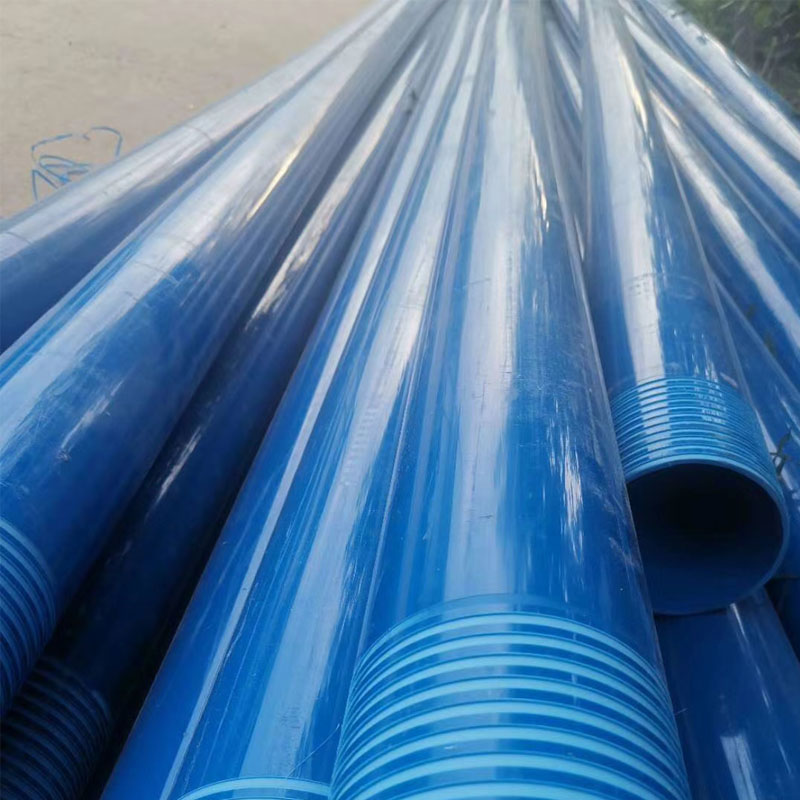Sep . 29, 2024 09:58 Back to list
Manufacturers of HDPE Pipes for Safe Drinking Water Supply Solutions
Understanding HDPE Pipe for Potable Water Manufacturers and Their Importance
High-Density Polyethylene (HDPE) pipes have become a prominent choice for potable water supply systems worldwide. The material's unique properties, including its durability, chemical resistance, and flexibility, make it an ideal candidate for water distribution applications. This article delves into the significance of HDPE pipes in potable water applications, the manufacturers that produce them, and the advantages that their innovations bring to modern water infrastructure.
The Advantages of HDPE Pipes for Potable Water
HDPE pipes are engineered specifically for rigorous applications, particularly in water supply and distribution systems. One of the most significant advantages of HDPE pipes is their resistance to corrosion and chemical leaching. Unlike traditional materials like metal or concrete, HDPE does not rust or corrode, ensuring the water remains untainted. This characteristic is crucial for potable water systems, where safety and sanitary conditions are paramount.
Another benefit is the impressive strength-to-density ratio of HDPE. This material is incredibly lightweight, making transportation and installation more straightforward and cost-effective compared to heavier alternatives. HDPE pipes can be easily joined using heat fusion technology, creating a durable, leak-free system that can withstand pressure fluctuations and ground movement. The flexibility of HDPE also allows for the accommodation of various soil types, reducing the risk of damage during installation.
Furthermore, HDPE pipes have a long service life, often exceeding 50 years. Manufacturers emphasize the durability of their products, producing pipes that can endure harsh environmental conditions without degrading. This longevity translates to lower maintenance costs and less frequent replacements, making HDPE an economically prudent choice over time.
Key Manufacturers of HDPE Pipes
The growth of the HDPE pipe market has led to an influx of manufacturers specializing in this technology. Some of the leading producers of HDPE pipes for potable water include
1. JM Eagle As one of the largest plastic pipe manufacturers in the world, JM Eagle boasts an extensive range of HDPE pipes that comply with national standards for drinking water. Their commitment to sustainability and innovation positions them as a front-runner in the industry.
hdpe pipe for potable water manufacturers

2. Charlotte Pipe and Foundry Established in 1901, Charlotte Pipe specializes in piping systems, including HDPE solutions for potable water. Their focus on quality and customer service has earned them a solid reputation in the construction and plumbing sectors.
3. Advanced Drainage Systems (ADS) Known primarily for its drainage solutions, ADS has expanded its product line to include HDPE pipes for water distribution. Their state-of-the-art manufacturing processes and focus on sustainable practices have made them a key player in the potable water market.
4. Georg Fischer (GF) Piping Systems With a strong emphasis on innovation, GF Piping Systems offers various HDPE solutions designed for safety and efficiency. Their products meet international standards, ensuring a reliable supply of potable water.
5. Puhui Industry A leading manufacturer in China, Puhui Industry provides high-quality HDPE pipes for various applications, including drinking water. Their competitive pricing and adherence to international standards have opened doors to global markets.
Future Perspectives in HDPE Pipe Manufacturing
As urbanization and population growth continue to increase, the demand for safe and reliable drinking water systems will only rise. Manufacturers are expected to invest further in research and development, focusing on enhancing the properties of HDPE pipes and implementing sustainable manufacturing practices.
Moreover, the increasing awareness about environmental issues and the necessity of sustainable solutions will propel industries toward greener practices. Incorporating recycled materials into the production of HDPE pipes and improving the energy efficiency of manufacturing processes will become key strategies for manufacturers aiming to reduce their ecological impact.
In conclusion, HDPE pipes play a crucial role in the supply of potable water, offering numerous benefits that make them preferable over traditional materials. As the industry evolves, leading manufacturers will continue to innovate, ensuring that the infrastructure for potable water is as safe, efficient, and sustainable as possible. The future of potable water distribution systems relies heavily on the advancements and commitments of these manufacturers, underscoring the importance of HDPE pipe technology in promoting public health and environmental sustainability.
-
High-Quality PVC Borehole Pipes Durable & Versatile Pipe Solutions
NewsJul.08,2025
-
High-Quality PVC Perforated Pipes for Efficient Drainage Leading Manufacturers & Factories
NewsJul.08,2025
-
High-Quality PVC Borehole Pipes Durable Pipe Solutions by Leading Manufacturer
NewsJul.08,2025
-
High-Quality PVC Borehole Pipes Reliable PVC Pipe Manufacturer Solutions
NewsJul.07,2025
-
High-Quality UPVC Drain Pipes Durable HDPE & Drain Pipe Solutions
NewsJul.07,2025
-
High-Quality Conduit Pipes & HDPE Conduit Fittings Manufacturer Reliable Factory Supply
NewsJul.06,2025

